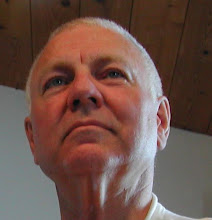Friends are asking why I follow Fidel Castro's blog so faithfully and why people like Oliver Stone are giving the likes of Hugo Chavez any benefit of doubt. Why not Lula da Silva instead, the remarkable President of Brazil?
That is a legitimate question, more subtle than we think.
Is my harping on Fidel naïve or ignorant of reality under that controversial regime?
I certainly hope not. For those who might not know, I speak Spanish fluently and the perspective of Cuba in this blog is based on pretty close interest since 1962.
I am not oblivious to the fact that a significant minority, perhaps even a majority of Cubans are keen for domestic change. The same old faces and political leadership can seem pretty dreary to us after as little as eight or ten years, let alone after 51 years, which is the case in Cuba.
What I still find fascinating in the midst of this disquiet, however, is how insightful old people can become when they no longer need to embellish the truth for tactical effect. They begin to tell it as it is. That is what I am hearing from friends in Cuba who are old enough to remember life before the revolution, some who have supported the revolution, grown fed up with it at times, but still see powerful and truthful elements in its rationale.
Now even Fidel has begun to comment more philosophically on foreign policy at least. Few of us ever expected him to soften because he has been so stridently defensive about his domestic record over the years, but he is surprising us recently with some pretty pithy cracks about his own political naïveté, especially as a proxy during the Cold War.
I think his speech to the National Assembly on August 7th should be taken in that context, as one more in a sequence of recent blogs he's written that differ substantively from anything prior.
The speech was framed as a direct plea to President Obama to deviate from standard military dogma on nuclear confrontation, especially when married to the Bush-Cheney approach to pre-emptive intervention. Fidel pleaded with Obama to explore alternative scenarios that include more third-world and southern hemispheric perspectives.
What seems sincere in Castro these days is his placing such pleas in a context of environmental and historical concern typical of someone who is now looking beyond the immediate, someone considering longer term human and planetary considerations. He is indeed sounding more like an old warrior digging deeper into even his own motives and earlier justifications for the preemptiove use of force.
In a somewhat ironic twist, I think he has been influenced as much by the likes of Lula da Silva and other modern southern leaders as he might have once inspired them.
A whole new generation of leaders has emerged in the southern hemisphere and in parts of Asia that the industrial empire and media have yet to understand and that emerging alternate information channels such as Al Jazeera English and Internet social media are now by-passing.
Yes, Obama recognizes the inherent danger of so many nuclear weapons and he has made efforts to reduce that arsenal. But his most ardent supporters are concerned by the apparent impact on him of the remorseless daily briefings from a Defence establishment permeated by precedent, wealthy vested interests and, most of all, deep secrecy camouflaged from civilian oversight.
Hence the drama over the recent WikiLeaks documents.
The reason WikiLeaks so easily fought off ferocious accusations of betrayal and troop endangerment last week is the sinister and cynical disregard for the truth to which the world grew accustomed during the Nixon and Cheney dynasties in foreign policy. Truth be known, the deception has been pervasive in all imperial regimes and we goof badly by dismissing such allegations as mere neo-con ranting or off-beat whacko conspiracy theory. A case could be made that only Eisenhower and Carter were honest American brokers in the last century
Careful semantic, syntactic and logical analysis of the utterances of our current crop of leaders and their legions of lobbyist sponsors would expose an immense subconscious maze of pre-supposition and deception to which we, the consumers of that propaganda seem oblivious.
That stupor is the cause of my increasignly strident diatribe against our press and commercial massmedia. If this blog has any dominant obsession, it is that our paid language professionals are failing utterly in their duty to expose the underlying presumptions and breaches of logic in the public and democratic dialogue.
The challenge for me in this blog, now that I've identified that as a scope and theme even when I no longer have such an easy target as Lou Dobbs to pick on, is to gradually morph from merely saying the media are perverting democratic dialogue to explicitely demonstrating how they do it.
That is what I aspire to over the next two to three years, drawing examples from local, national and international reportage.
In the interim, placing the contemporary speeches of Fidel Castro side-by-side with those of other world leaders is not a bad place to start given the themes Fidel has decided to highlight in his 'legacy' years.

No comments:
Post a Comment